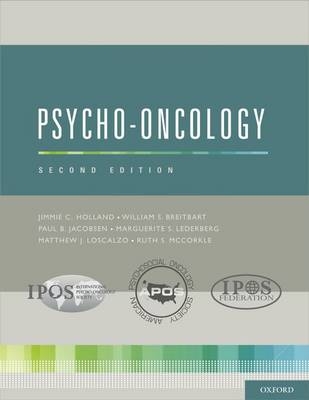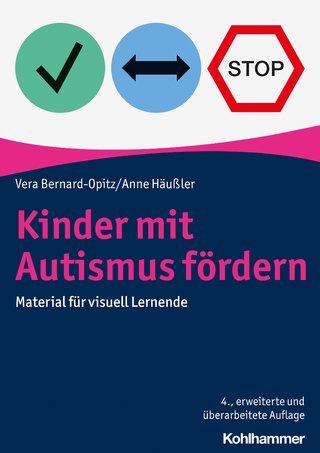
Psycho-Oncology
Oxford University Press Inc (Verlag)
978-0-19-536743-0 (ISBN)
- Titel ist leider vergriffen;
keine Neuauflage - Artikel merken
Developed in collaboration with the American Psychosocial Society and the International Psycho-oncology Society, this fully updated text will be of interest to psychiatrists, psychologists, mental health counselors, oncologists, hospice workers, and social workers.
Dr. Holland holds the Wayne E. Chapman Chair in Psychiatric Oncology in the Department of Psychiatry & Behavioral Sciences at Sloan-Kettering Memorial Cancer Center and is Professor and Vice-Chairman of the Department of Psychiatry at Weill Medical College of Cornell University.
I. INTRODUCTION
Chapter 1: History of Psycho-oncology
II. BEHAVIORAL AND PSYCHOLOGICAL FACTORS IN CANCER RISK
Chapter 2: Tobacco Use
Chapter 3: Diet
Chapter 4: Exercise and Cancer
Chapter 5: Sun Exposure
Chapter 6: Socio-Economic Status and Psycho-Oncology
Chapter 7: Psychosocial Factors
Chapter 8: Social Ties and Cancer
III. SCREENING FOR CANCER IN NORMAL AND AT RISK POPULATIONS
Chapter 9: Colorectal Cancer Screening
Chapter 10: Psychosocial Issues in Cervical Cancer Screening
Chapter 11: Breast Cancer Screening
Chapter 12: Prostate Cancer Screening
IV. SCREENING AND TESTING FOR GENETIC SUSCEPTIBILITY TO CANCER
Chapter 13: Genetic Susceptibility to Breast/Ovarian Cancer
Chapter 14: Psychosocial Issues in Genetic Testing for Hereditary Colorectal Cancer
V. PSYCHOLOGICAL ISSUES RETATED TO SITE OF CANCER
Chapter 15; Instruments in Psycho-oncology
Chapter 16: Central Nervous System Tumors
Chapter 17: Head and Neck Cancer
Chapter 18: Gastrointestinal Cancer
Chapter 19: Liver Cancer
Chapter 20: Lung Cancer
Chapter 21: Genitourinary Malignancies
Chapter 22: Gynecologic Cancer
Chapter 23: Skin Neoplasms and Malignant Melanoma
Chapter 24: Breast Cancer
Chapter 25: Sarcoma
Chapter 26: Hematopoietic Dyscrasias and Stem Cell/Bone Marrow Transplantation
Chapter 27: HIV Infection and AlDS-Associated Neoplasms
Chapter 28: Tumor of Unknown Primary Site
Chapter 29: Common Tumors in the Developing World
VI. MANAGEMENT OF SPECIFIC SYMPTOMS
Chapter 30: Pain
Chapter 31: Nausea and Vomiting
Chapter 32: Fatigue
Chapter 33: Sexuality after Cancer
Chapter 34: Neuropsychological Impact of Cancer and Cancer Treatments
Chapter 35: Sleep and Cancer
Chapter 36: Weight and Appetite Loss in Cancer
VII. PALLIATIVE AND TERMINAL CARE
Chapter 37: The Role of Palliative Care in Cancer Care Transitions
Chapter 38: Hospice and Home Care
Chapter 39: International Aspects of Palliative Care
VIII. PSYCHIATRIC DISORDERS
Chapter 40: Psychiatric Emergencies
Chapter 41: Adjustment Disorders
Chapter 42: Depressive Disorders
Chapter 43: Suicide
Chapter 44: Anxiety Disorders
Chapter 45: Delirium
Chapter 46: Substance Abuse and Alcohol
Chapter 47: Posttraumatic Stress Disorder
Chapter 48: Somatoform Disorders and Factitious Illness/Malingering in the Oncology Setting
Chapter 49: Cancer Care for Patients with Schizophrenia
Chapter 50: Difficult Personality Traits and Disorders in Oncology
Chapter 51: Psychotropic Medications in Cancer Care
IX. INTERVENTIONS
Chapter 52: Screening Procedures for Psychosocial Distress
Chapter 53: Principles of Psychotherapy
Chapter 54: Cognitive Therapy
Chapter 55: Group Psychotherapy for Persons with Cancer
Chapter 56: Cognitive and Behavioral Interventions
Chapter 57: Art Therapy/Music Therapy
Chapter 58: Meditation
Chapter 59: Spiritual Beliefs: Assessment, Screening, and Intervention
Chapter 60: Integrative Oncology
Chapter 61: Rehabilitation, Exercise and Physical Therapy
Chapter 62: Rehabilitation Medicine in Oncology
Chapter 63: Self-Management Support
Chapter 64: Problem Solving
Chapter 65: The Wellness Community's Integrative Model of Evidence-Based Psychosocial Programs, Services, and Interventions
Chapter 66: Survival and Psychotherapeutic Interventions
Chapter 67: Psychosocial Interventions for Couples and Families Coping with Cancer
X. SPECIAL CONSIDERATIONS
Chapter 68: The Older Patient
Chapter 69: The Young Adult Patient
Chapter 70: Health Disparities
XI. PSYCHOLOGICAL ISSUES FOR THE FAMILY
Chapter 71: The Family of the Cancer Patient and Home Care
Chapter 72: Spouse Caregivers of Cancer Patients
Chapter 73: Gender and Caregiving
Chapter 74: Cancer Patients with Minor Children
Chapter 75: Psychosocial Research and Practice with Adult Children of Cancer Patients
Chapter 76: Bereavement: A Special Issue in Oncology
XII. SURVIVORSHIP
Chapter 77: Positive Consequences of the Experience of Cancer: Perceptions of Growth and Meaning
Chapter 78: Changing Health Behaviors after Treatment
Chapter 79: Integration of Recent IOM Work: Survivorship Care Plans
Chapter 80: Adult Survivors of Childhood Cancers
XIII. BUILDING PSYCHOSOCIAL PROGRAMS
Chapter 81: Building Psychosocial Programs: A Roadmap to Excellence
Chapter 82: Oncology Staff Stress and Related Interventions
Chapter 83: Training Psychiatrists and Psychologists in Psycho-oncology
Chapter 84: Principles of Training Social Workers in Oncology
Chapter 85: Education of Nurses in Psycho-oncology
Chapter 86: Principles of Communication Skills Training in Cancer Care
Chapter 87: Education of Chaplains
Chapter 88: Professional Education in Psychosocial Oncology
XIIII. ETHICAL ISSUES
Chapter 89: Care Ethics: An Approach to the Ethical Dilemmas of Psycho-oncology Practice
Chapter 90: Negotiating the Interface of Psycho-oncology and Ethics
Chapter 91: Research Ethics in Psycho-Oncology
XV. THE FUTURE OF PSYCHO-ONCOLOGY RESEARCH
Chapter 92: Basic and translational psycho-oncology research
Chapter 93: Clinically relevant psycho-oncology research
Chapter 94: How to Design and Analyse Screening Studies
XVI. INTERNATIONAL PSYCHO-ONCOLOGY
Chapter 95: International Psycho-oncology: Present and Future
XVII. INTERNATIONAL PSYCHO-ONCOLOGY
Chapter 96: International Psycho-oncology: Present and Future
Chapter 97: Translation of Research to Policy: The New Standard of Quality Cancer Care in the US: The Institute of Medicine (IOM) Report, Cancer Care for the Whole Patient: Meeting Psychosocial Needs
| Zusatzinfo | 70 illustrations |
|---|---|
| Verlagsort | New York |
| Sprache | englisch |
| Gewicht | 1820 g |
| Themenwelt | Medizin / Pharmazie ► Medizinische Fachgebiete ► Neurologie |
| Medizin / Pharmazie ► Medizinische Fachgebiete ► Onkologie | |
| Medizin / Pharmazie ► Medizinische Fachgebiete ► Palliativmedizin | |
| Medizin / Pharmazie ► Medizinische Fachgebiete ► Psychiatrie / Psychotherapie | |
| ISBN-10 | 0-19-536743-X / 019536743X |
| ISBN-13 | 978-0-19-536743-0 / 9780195367430 |
| Zustand | Neuware |
| Haben Sie eine Frage zum Produkt? |
aus dem Bereich


